| Transcaucasian and Visegrad Nations Common Memory – Occupants or Liberators? Democracy or Tyranny? |
International Visegrad Fund |
2023-2024 |
€ 13,812.27 |
 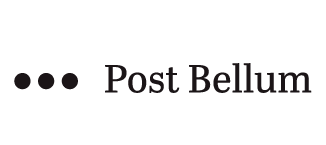
Project title: Transcaucasian and Visegrad Nations Common Memory – Occupants or Liberators? Democracy or Tyranny?
Supported by: International Visegrad Fund
Grant Number: 22230312
Projec Lead: Post Bellum (CZ)
Overall Budget: 49,954.00 EUR
IDFI’s Share: 13,812.27 EUR
Duration: 01.04.2023 - 30.09.2024
Project lead and partners:
Post Bellum is a non-governmental nonprofit organization which documents the memories of witnesses of the important historical phenomenon of the 20th century and tries to pass these stories on to the broader public. It was founded in 2001.The organization was founded by a group of journalists and historians. The organization believes that witnesses should have the opportunity to tell their stories and that these stories should be accessible to everyone. From this vision, Post Bellum was created.
Post Bellum’s core project is the Memory of Nations, a collection of memories from people who experienced the totalitarian eras of the 20th century as well as photographs, newspapers, and various historical records. The collection is comprised of about 12 thousand of witness stories and is accessible to the public through an online database.
Partners:
- Slovakia - Post Bellum SK
- Poland - Krzyzova Foundation for Mutual Understanding in Europe
- Hungary - Terra Recognita Foundation
- Armenia - „Hazarashen“ Armenian Center for Ethnological Studies
Overall Project Objectives:
The aim of the project is to document Armenian and Georgian witnesses remembering past, who can tell their life stories related to common Communist past. Georgian and Armenian project partners will receive workshops in documenting the life stories by oral historical methodology.
The primary focus of the project is to not only document the witnesses' life stories, but also to edit, publish, and employ these testimonies for educational activities. Specifically, the project will target younger generations by using experiential workshops as a platform for educating them.
The principal outcome of the project will be a short documentary film that underscores the shared history of the nations involved. The project aims to raise awareness among people and nations, emphasizing the repetition of history and our inability to learn from past mistakes. It aims to impart valuable lessons to the current and future generations, by means of experiential workshops, encouraging them to take those lessons to heart and mind.
Activities:
- Organizing a kick-off meeting in Tbilisi with Slovak, Czech, Hungarian, Polish, and Armenian partners to define project principles and plan further activities.
- Conducting a series of online workshops aimed at sharing the experience of documenting witnesses with Georgian and Armenian historians and filmmakers.
- Recording video interviews with more than 10 witnesses in Georgia who experienced Soviet "liberation" and had to live behind the Iron Curtain.
- Processing and publishing the witness videos in eight languages, including the languages of the countries involved in the project, as well as English and Russian.
- Producing a documentary film titled "Liberated and Occupied?" that will be based on the recorded interviews.
- Premiering the documentary and screening it for the target audience, including schoolchildren and students. The project team will arrange discussions parallel to the film screening.
Budget
Contract
Grant agreement
|
The aim of the project is to document Armenian and Georgian witnesses remembering past, who can tell their life stories related to common Communist past.
View more →
|
| Parliamentary Project |
United Nations Development Programme (UNDP) |
2023 |
USD 4500 |
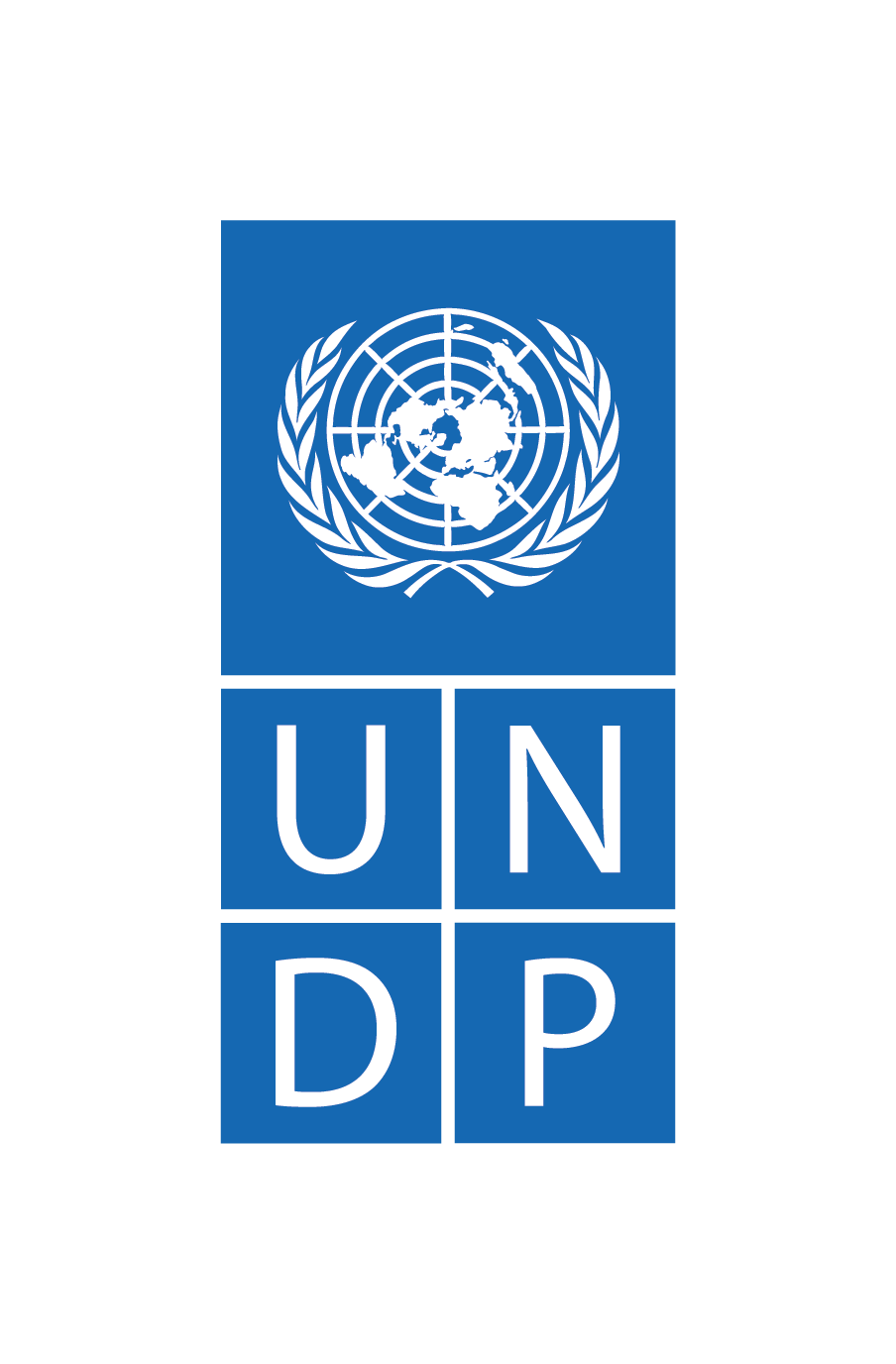
Project Title: Parliamentary Project
Funded by: United Nations Development Programme (UNDP)
Budget: USD 4500.00
Duration: April 24 – June 30, 2023
Project Goal:
The Institute for Development of Freedom of Information will provide services to the United Nations Development Programme (UNDP) and will support the Supreme Council of Ajara to facilitateimplementation of the 2021-2024 Institutional Development Strategy, strengthening of the effective oversight and the fulfilment of commitment under the Open Governance Action Plan 2022-2024.
Main Activities Envisaged by the Project:
1. Providing consultation and assistance to the Open Governance Council and the Department of Strategic Development and International Relations of the Supreme Council of Ajara in processing of opinions and information received within the framework of the Thematic Inquiry, as well as support in desk research, for the preparation of the Thematic Inquiry report and recommendations, including through provision of feedback and input for the final outputs of the Thematic Inquiry.
2. Supporting the SCA in the enhancement of its oversight functions, through consulting and provide feedback in the process of developing a guide on the oversight mechanisms of the Supreme Council of Ajara - with particular focus on new oversight mechanisms, the recommendations on their effective use and tools to engage citizens further.
Contract
Grant agreement
|
IDFI will support the Supreme Council of Ajara to facilitateimplementation of the 2021-2024 Institutional Development Strategy, strengthening of the effective oversight and the fulfilment of commitment under the Open Governance Action Plan 2022-2024.
View more →
|
| Fostering Decentralization and Good Governance at the Local Level in Georgia |
UNDP Georgia |
2023 |
GEL 209,512 |
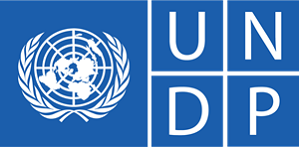
Project Title: Fostering Decentralization and Good Governance at the Local Level in Georgia
Donor: UNDP Georgia
Budget: 209,512.00 GEL
Duration: February 24, 2023-November 30, 2023
The aim of the grant is to contribute to the development and improvement of transparency and accountability of local self-governments and support public participation in the local decision-making processes through monitoring, reporting, capacity building, advocacy and networking.
To this end, the grant’s specific objective is to assess the openness and accountability of municipalities based on the Local Self-Government Index for the fourth time for 2023 and communicate the results with relevant local, national and international stakeholders.
Under the grant, IDFI will have several outputs and will implement the following activities:
Output 1: Local integrity systems are advanced through increased capacities of local stakeholders and the assessment of municipalities
Activity 1.1. Ensuring institutional, and methodological set up of future capacity building, monitoring and and research efforts – review of the methodology, preparing all monitoring documents, updating the website and outreach to relevant stakeholders
Activity 1.2. Conducting training for local observers/partners/experts and launching the evaluation
Activity 1.3. Assessment of municipalities – initial assessment and review process
Activity 1.4. Communicating initial assessments with municipalities and results validation
Output 2: Advocacy and networking between civil society organizations, the government institutions and donor community are promoted
Activity 2.1: Preparing the monitoring report, key findings and recommendations
Activity 2.2. Providing with networking and advocacy platform
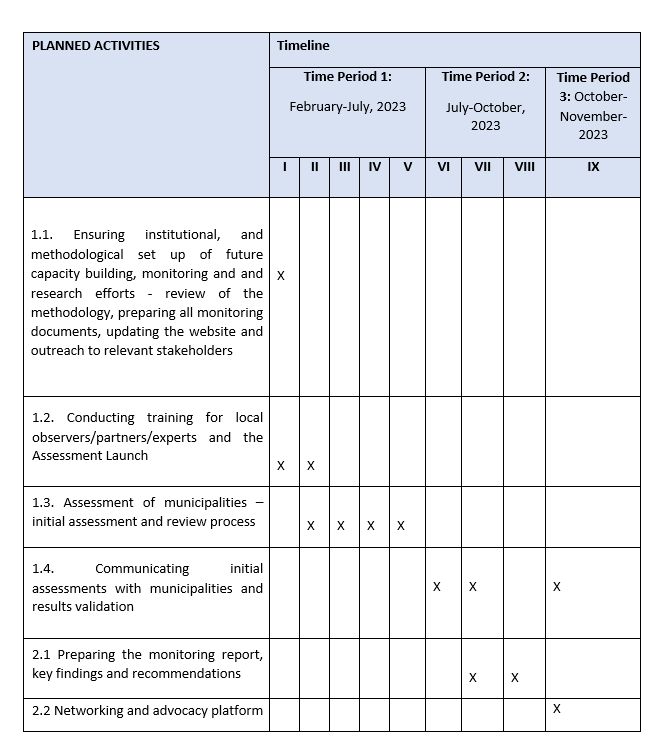
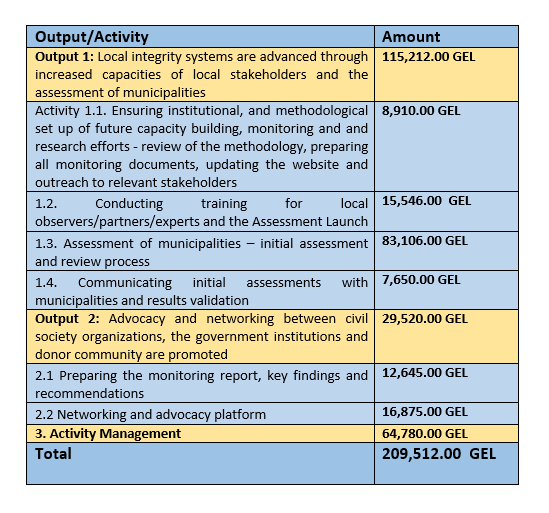
Contract
Grant agreement
|
The aim of the grant is to contribute to the development and improvement of transparency.
View more →
|
| Promoting the Accessibility of Judicial acts through Monitoring, Advocating and Litigation |
USAID Rule of Law Program |
2023-2024 |
$ 24,850 |
 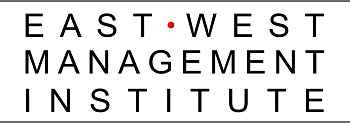
Project title: Promoting the Accessibility of Judicial acts through Monitoring, Advocating and Litigation
Donor organization: USAID Rule of Law Program
Project number: G-2126-23-211-3047-20
Project Duration: 1 February, 2023 - 30 November, 2023
Grant amount:$ 24,850.00
Project summary
The project aims at ensuring the accessibility of judicial acts through monitoring, advocacy, and strategic litigation. The project activities will be focused on the implementation of the Constitutional Court’s decision of 7 June 2019, the execution of the decision will be monitored, working meetings will be held with the representatives of the Parliament and other relevant stakeholders, an analytical report will be prepared, and applicable legislative amendments to the Organic Law of Georgia on Common Courts will be advocated. The project team will also start strategic litigation requesting proactive publication of the court decisions.
Purpose of the project
The overall purpose of the project is to promote the accessibility of judicial acts
Objectives of the project
- Monitoring the implementation of the Constitutional Court’s decision of 7 June 2019;
- Holding working meetings with stakeholders and preparing/advocating relevant recommendations;
- Delivering a report on the availability of the judicial acts, identifying the challenges in legislation and practice;
- Submitting a complaint to the court requesting to publish/disclose judicial acts.
Activities
Budget
Contract
Grant agreement
|
The overall purpose of the project is to promote the accessibility of judicial acts.
View more →
|
| Advocating Open Data Standards and Promoting Open Data Use in Georgia – Phase II |
International Media Support (IMS) |
2023 |
€ 30,887 |
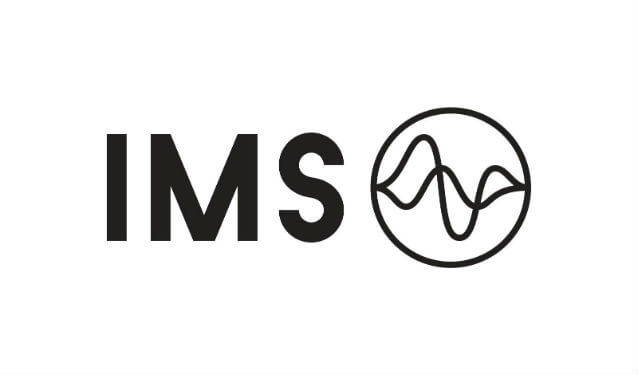
Project Title: Advocating Open Data Standards and Promoting Open Data Use in Georgia – Phase II
Donor: International Media Support (IMS)
Budget: 30,887 EUR
Duration: February 1 –September 30, 2023
Summary of Project and Activities:
Despite Georgia’s achievements in making more public data available over the past years, international studies and our analyses demonstrated that the country’s performance is low in terms of availability of beneficial ownership data. It is widely acknowledged that availability of beneficial ownership data is incremental for journalists and civil society representatives to track activities of companies and high-ranking officials as well as reveal potential corruption cases. Due to the importance of the issues, we consider it relevant to elaborate and propose Beneficial Ownership Data Standards to relevant public institutions and stakeholders.
On the other hand, IDFI plans to expand its awareness raising and outreach activities on the use of public data for holding the government accountable in the regions of Georgia, where activists, journalists, civil society actors, students, and other stakeholders necessitate experience and knowledge sharing on methods and tools for using data for government oversight activities.
The project aims to continue advocating Open Data Standards (especially, Beneficial Ownership Data Standards) through sharing best practices and outreaching to relevant stakeholders. In addition, to ensure greater public use of public data, capacity building and outreach activities will be implemented for local civil society actors and stakeholders.
IDFI will implement the following activities in frames of the proposed project:
Activity 1. Preparatory stage - At the first phase of the project, IDFI will plan/prepare all organizational or methodological documents/issues, which ensure that all project activities are implemented on time and with high quality.
Activity 2. Preparation and elaboration of Beneficial ownership data standards for Georgia – Based on international best practices and experience of several advanced countries in this direction (e.g. UK, Denmark, etc.), IDFI will prepare policy document/analytical paper on beneficial ownership standards (with the focus on open data standards - BOD) for Georgia.
Activity 3. Beneficial Ownership Data Standards advocacy meeting/workshop - IDFI will organize an advocacy meeting with the participation of Georgian civil society, public institutions, journalists, academia, business sector, and the international community to discuss the prospects for the elaboration and adoption of beneficial ownership standards in Georgia. IDFI will present its policy document/analytical paper prepared as part of the project.
Activity 4. Preparing and conducting trainings in the regions - Three one-day practical trainings will be held for journalists, activists, watchdogs and CSOs residing in three big cities outside Tbilisi.
Activity 5. Publishing and Updating Datasets on DataLab.Ge – In order to ensure that more relevant data is available for the Georgian public in open formats for their future use, IDFI will publish and update more datasets on its portal – DataLab.Ge. Three winners will be awarded financial awards at the end of the project.
Activity 6. Open Data Contest - In order to promote the use of open data for government accountability and the public good, IDFI will organize its annual contest on analytical articles on the topic of #Data4Change.
Project Activities and Budget
Contract
Grant agreement
|
The project aims to continue advocating Open Data Standards (especially, Beneficial Ownership Data Standards) through sharing best practices and outreaching to relevant stakeholders.
View more →
|
| Gender Equality for Sustainable Development in Guria Region |
Dekabristen e.V. |
2022 |
€ 730 |
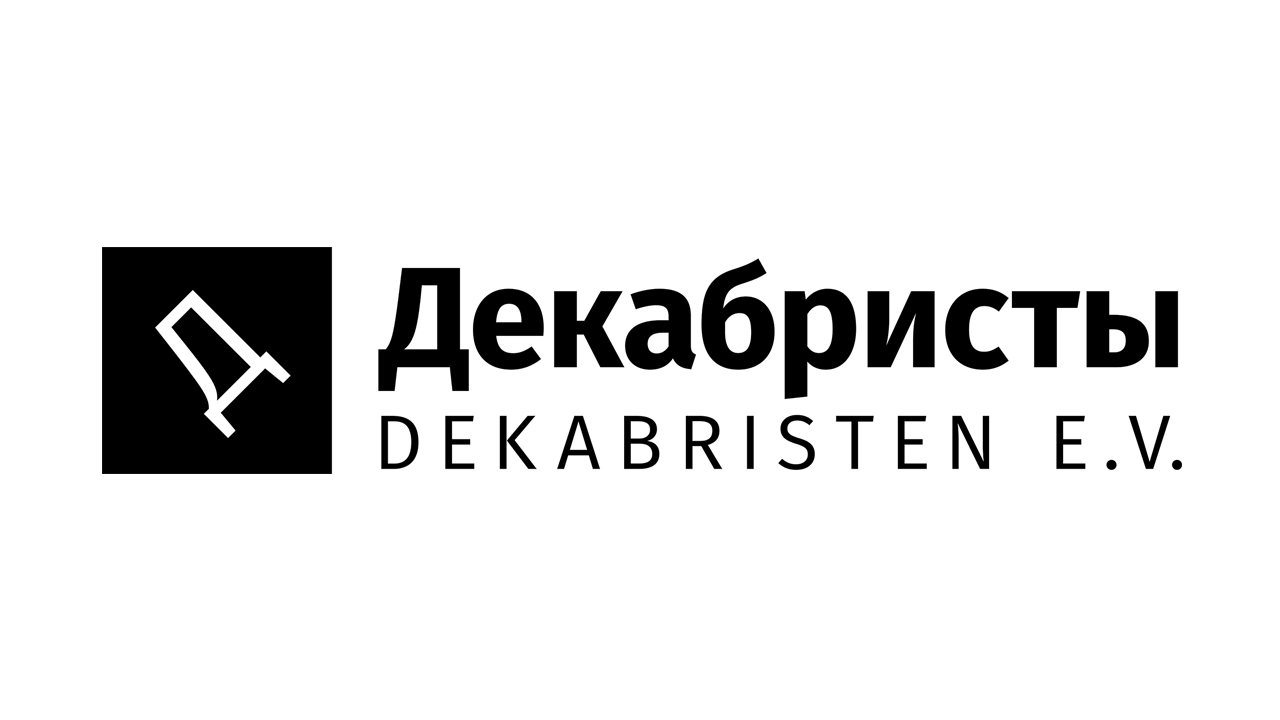
Name of the project: Gender Equality for Sustainable Development in Guria Region
Supported by: Dekabristen e.V.
Budget: EUR 730
Duration of the Project: September 8 - September 26, 2022
Overall project objectives:
The primary objective of the project is to build capacity of the Municipal Gender Equality Council (established at the level of municipalities in Georgia for the purpose of ensuring regular and coordinated work on gender issues) members and initiate close coordination with reference to Sustainable Development Goals (SDGs) in three self-governing units of Guria: Lanchkhuti Municipality, Ozurgeti Municipality and Chokhatauri Municipality.
The capacity building activity/training aims at incorporating national indicators regarding SDG5 into the annual action plan and long-term gender equality strategy, and raise awareness of the members that will contribute to the meaningful changes - to prevent violence against women and domestic violence, recognize and value domestic work through the provision of public services and raise the visibility and impact of global initiatives.
The training will also address local and innovative actions and solutions that can lead to transformative change toward the SDGs. The IDFI team will determine the SDG Ambassador from each council (contact person) who will be eager to bring a new perspective to the council in course of the SDGs and encourage council members to participate in the global process.

Grant agreement
|
The primary objective of the project is to build capacity of the Municipal Gender Equality Council (established at the level of municipalities in Georgia for the purpose of ensuring regular and coordinated work on gender issues) members and initiate close coordination with reference to Sustainable Development Goals (SDGs).
View more →
|
| Digital Freedoms in Georgia - 2023 |
Internews and United States Agency for International Development (USAID) |
2022-2023 |
USD 19,839 |
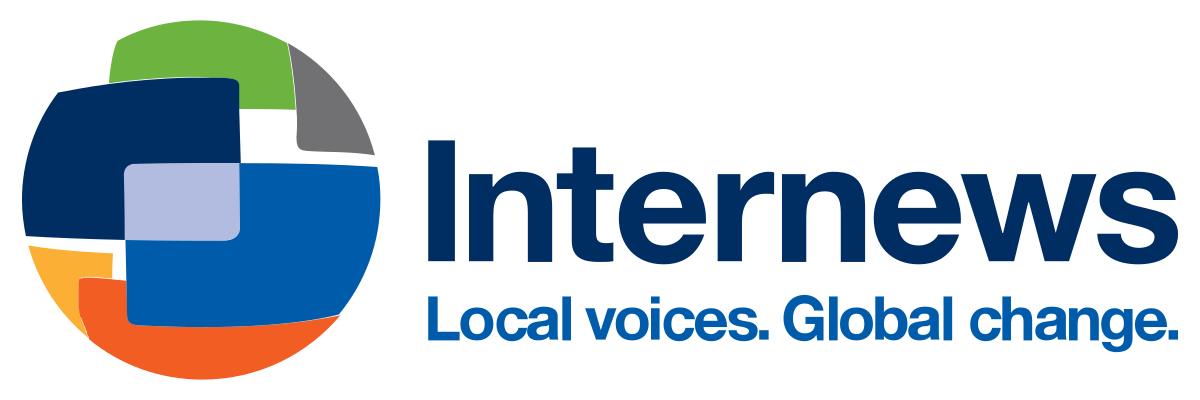 
Project Title: Digital Freedoms in Georgia - 2023
Project N: 7200AA20CA00021
Donor: Internews and United States Agency for International Development (USAID)
Budget: USD 19,839
Duration: November 29, 2022 – May 28, 2023
Summary of the Project
The project aims to strengthen Internet freedom in Georgia.
IDFI will implement the following activities as part of the project:
Activity 1. Produce a policy brief on surveillance, encryption and/or digital freedoms in the country - IDFI will prepare a policy brief on the most pressing digital challenges, developments and needs in the sphere of digital freedoms (including surveillance, encryption, or digital safety in Georgia).
Activity 2. Campaign and engagement with communities and/or advocacy activities based on work in year 2 activities - In order to raise awareness of people about emerging digital challenges, new developments and our recommendations, as well as to reach out more people, IDFI will prepared three videos on various digital safety issues. In particular, when selecting the video topics/text, the prepared policy briefs, analyses and elaborated recommendations, as well as content of our trainings conducted before will be used.
Apart from the videos, to follow-up our recommendations, voice the challenges we observed over the past years, IDFI will hold a presentation or workshop with the participation of all relevant stakeholders (e.g. several public institutions, CSOs, business sector, technical community) to discuss emerging digital threats, our recommendations on protecting digital rights in Georgia and necessary steps to be taken in the coming years.
Activity 3 - Plan, organize, and host 1 training on digital rights – Based on the materials IDFI had prepared on digital safety as well as prepared videos and policy briefs, IDFI will conduct a training on digital rights for students, journalists, CSO representatives and civic activists.
Budget
Contract
Grant agreement
|
The project aims to strengthen Internet freedom in Georgia.
View more →
|
| Consolidating Parliamentary Democracy in Georgia |
The European Union (EU), United Nations Development Programme (UNDP) |
2022 |
$ 4650 |
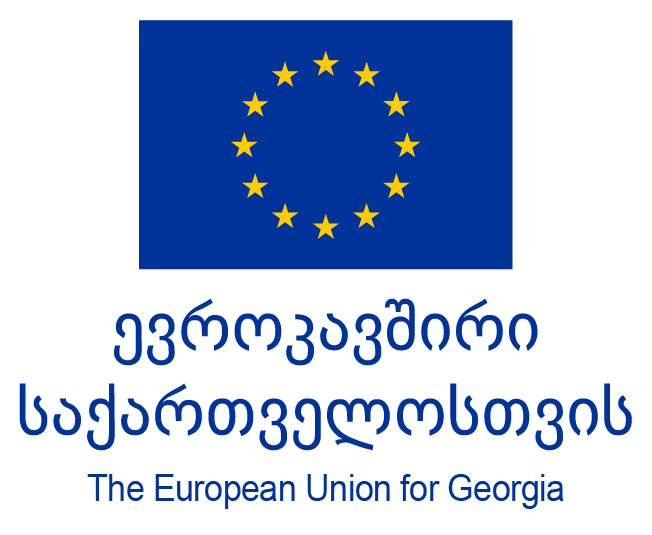 
Project Title: EU-UNDP project - “Consolidating Parliamentary Democracy in Georgia”
Funded by: The European Union (EU), United Nations Development Programme (UNDP)
Budget: USD 4650.00
Duration: November 14 – December 25, 2022
Project Goal:
The Institute for Development of Freedom of Information will provide services to the United Nations Development Programme (UNDP) and will support the Supreme Council of Ajara to the implementation commitments of the Open Governance Action plan for 2022-2024.
Main Activities Envisaged by the Project:
1. Piloting a Thematic Inquiry on open governance issues:
1.1. Providing trainings for staff of the Supreme Council of Ajara and representatives of civil society organizations on the full process of Thematic Inquiry.
1.2. Providing consultation and assistance to the Supreme Council of Ajara in preparing the relevant documents for conducting the Thematic Inquiry.
2. Consultancy in the development of the concept of the international conference and holding workshop with the Ajara Supreme Council staff.
3. Consultancy In the process of developing a guide on the oversight mechanisms of the Supreme Council of Ajara and holding workshop with the staff of Supreme Council.
Budget
Grant agreement
|
the project goal is to support the Supreme Council of Ajara in the implementation commitments of the Open Governance Action plan for 2022-2024.
View more →
|
| Analysis of Russian Capital in Georgian Business - Stage 3 |
Georgian Information Integrity Program(GIIP) / USAID |
2022-2023 |
GEL 57,250 |
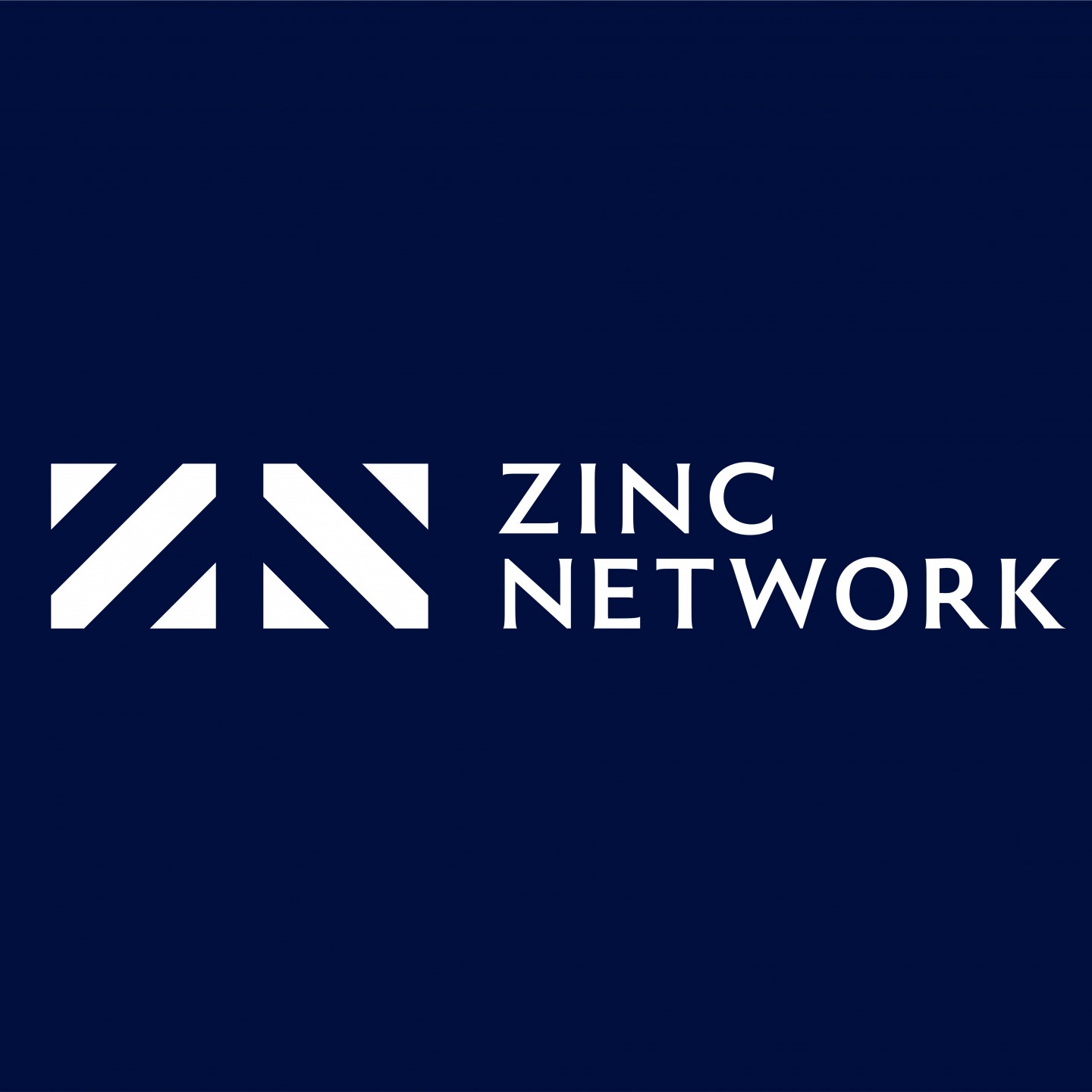
Project title: Analysis of Russian Capital in Georgian Business - Stage 3
Supported by: Georgian Information Integrity Program(GIIP) / USAID
Budget: GEL 57,250
Duration: October 26, 2022 – May 5, 2023
In the second phase of the project, IDFI intends to review and publish a new report detailing the work, resources and connections of Georgian companies owned by Russian citizens in the following sectors: water resources, tourism, construction and big investments from other sectors not listed in previous stages of the project.
In addition, at this stage the findings from all three stages of total 11 sectors will be combined and published as one large study. In this way, the project will result in one extensive report about Russian capital in Georgia’s key business sectors.
The business is often related to socio-political actors and influences on public perceptions. We deem it important to closely investigate such links between political, civil and media actors and business companies owned by the citizens of Russia. This would give us a clear image of funding sources behind some malign political, media and civil actors that actively spread disinformation in the country. For this, IDFI will monitor the donations, lobbying cases and other types of connections between the companies and societal actors in order to map the network of Russian capital and political organizations in Georgia. As a result of the three-stage project, IDFI plans to create a map of the Russian capital in Georgia, which will be integrated into the Georgian Disinformation Ecosystem Map.
Project Objectives
- Investigation of Russian capital in the mentioned sectors of Georgian business and its impact on the political, media and civil sectors;
- Investigating and mapping the Russian capital in Georgian business and its impact on Georgian political, media, and civil actors;
- Revealing the connections between the companies owned by the citizens of Russia and political, civil, and media actors affiliated with the government of the Russian Federation;
- Creating an effective tool and source of verified information for the civil society and research organizations as well as for media outlets that are focused on Russian-Georgian relations, Russian propaganda and disinformation issues;
-Investigate the activities of the companies, relevant to these sectors, that have been sanctioned by the West after the Russian invasion in Ukraine.
Project activities:
- In the second phase of the project, gathering information from public agencies, the Internet and other open sources in the following key areas: water resources, tourism, construction and big investments from other sectors not listed in previous stages of the project.
- Update the company information studied in 2015’s report.
- Creating an analytical brief/interim report.
-Production and advertising of the final research report of the three stages.
Project Budget and Activities
Grant agreement
|
Project obcetives are To Investigation of Russian capital in the mentioned sectors of Georgian business and its impact on the political, media and civil sectors. Also Revealing the connections between the companies owned by the citizens of Russia and political, civil, and media actors affiliated with the government of the Russian Federation
View more →
|
| Research on Population Data Analysis in Global Data Barometer about the Eastern Europe and Central Asia Region |
United Nations Population Fund (UNFPA) Regional Office for Eastern Europe and Central Asia |
2022 |
USD 9,990 |
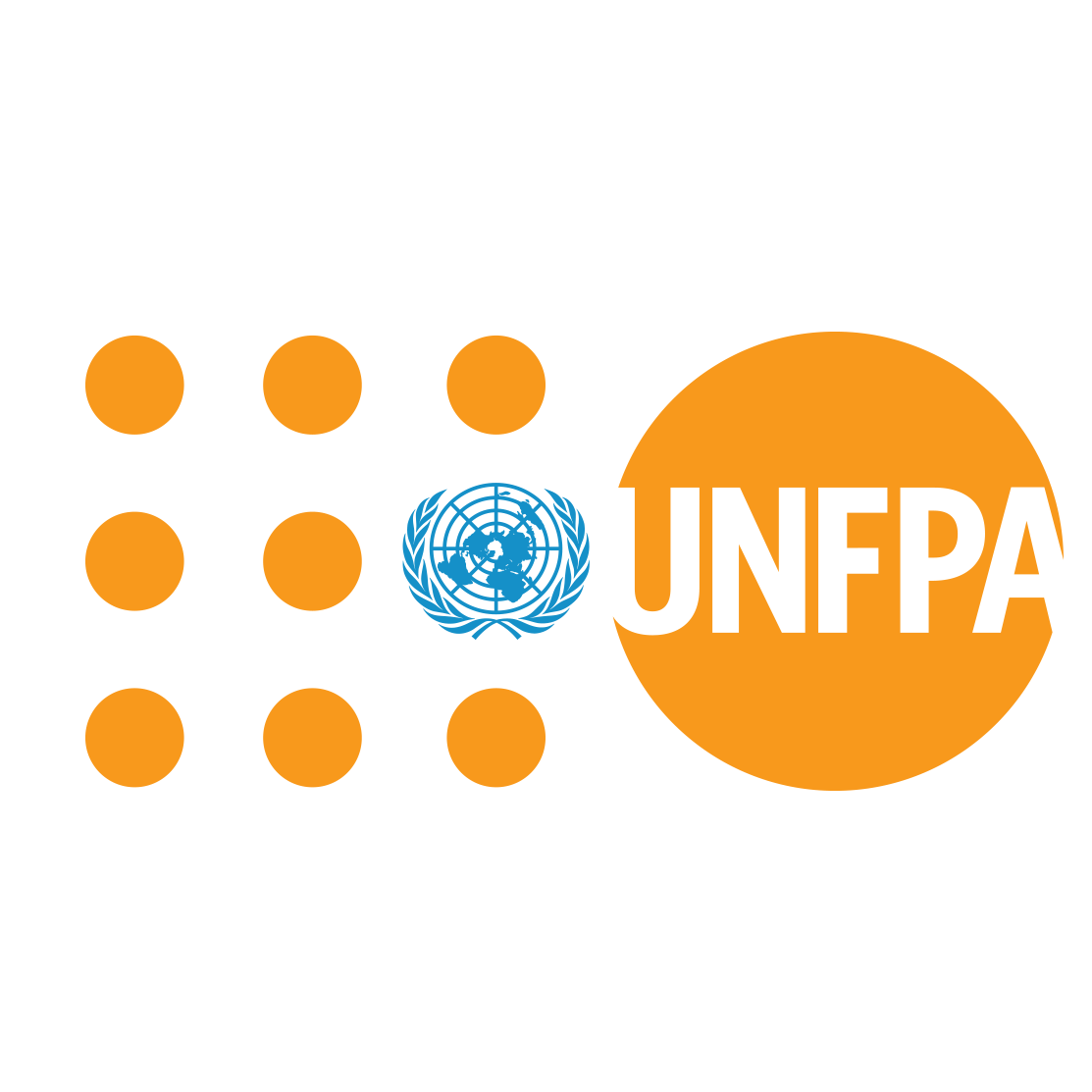
Project Title: De Minimis Contract on Research on Population Data Analysis in Global Data Barometer about the Eastern Europe and Central Asia Region
Project #: UNFPA/EECARO/PSC/2022/004
Donor: United Nations Population Fund (UNFPA) Regional Office for Eastern Europe and Central Asia
Budget: USD 9,990
Duration: November 1, 2022-December 31, 2022
Summary of the Project
In frames of the project, IDFI will analyse GDB results of the countries from Central Asia and Eastern Europe region in Health and Covid-19 module, which includes country assessments in terms of accessibility of important population/demographic data. In particular, the module consists of the following sub-modules/categories:
- Vital statistics (primary indicator);
- Healthcare system capacity data (secondary source);
- Real-time healthcare system capacity data (primary indicator);
- COVID-19 statistics, which includes Vaccination data (primary indicator); Testing data (secondary source); Infection and mortality data (secondary source).
Based on the analysis, IDFI will prepare a comprehensive report, which will contain the following topics/chapters:
- Major tendencies and findings in the region regarding the accessibility of population and healthcare data
- Compilation of best practices from the countries regarding the accessibility of population and healthcare data
- Major gaps and needs in terms of accessibility of population and healthcare data
- Recommendations in terms of accessibility/management of population and healthcare data
- Annex of country profiles - country results in particular indicators, highlighting major strengths and needs/gaps in terms of accessibility of population
and healthcare data.
Budget
Contract
Grant agreement
|
In frames of the project, IDFI will analyse GDB results of the countries from Central Asia and Eastern Europe region in Health and Covid-19 module, which includes country assessments in terms of accessibility of important population/demographic data.
View more →
|
| Roots of Anti-Western Propaganda |
Institute for war and peace reporting (IWPR) |
2022 |
€ 4500 |
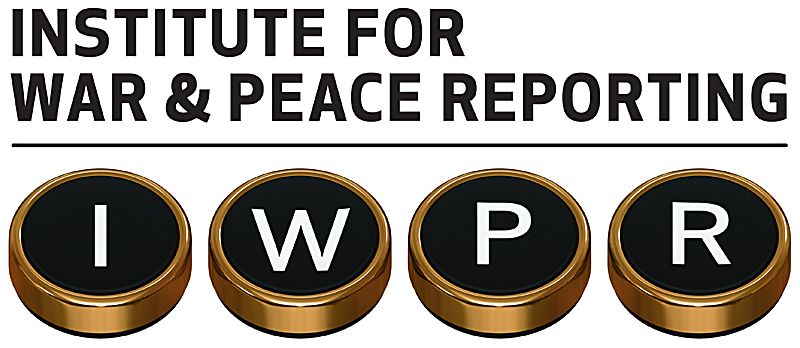
Name of the project: Roots of Anti-Western Propaganda
Supported by: Institute for war and peace reporting (IWPR)
Budget: 4500 Euros
Duration of the Project: September 20 - december 20, 2022
Russia actively uses its economic, financial, political, and informational leverages, and resorts to information war and propaganda to return our country to its orbit. It is worth noting that the existence of pro-Russian, anti-Western forces inside the country is the result of the Russian narrative. Due to the long-term Soviet propaganda, the nostalgia for the united Soviet Union, and the fear of European values, lifestyle, and society, in general, still exist in a certain part of society.
The results of the nationwide representative public opinion research conducted in Georgia by USAID Information Integrity Program revealed that Soviet nostalgia is still an issue nowadays. Soviet Nostalgia is strongest among the older, rural and ethnic minority population.
The main focus of the small study will be to analyze anti-Western narrative as constructed within the Georgian press of the 1970s. In particular economic, social and cultural dimensions of constructing the anti-Western discourse in the most important daily newspaper - The Communist (Komunisti) will be examined. As the this was the newspaper that waged a daily informational warfare against the West.
In the scope of the proposed project, the issues of the newspaper from the five years’ period (1970 to the end of 1974) will be randomly selected and analyzed using the tools of narrative and discourse analysis. Particularly, the data collection and analysis process will be focused on the narratives that include references to the Western examples, coverage of the international news and comparisons used in the media coverage of social, cultural, economic and political issues. In addition, the materials such as posters, caricatures, and other types of visualizations will be included in the study. Understanding the roots of the anti-Western propaganda will be useful for demonstrating the historical relevance of the modern day disinformation tools used mainly by Russian or pro-Russian sources.
Overall project objectives:
- Increased understanding of the historical development of the anti-Western propaganda fueled by a regime headquartered in Russia;
- Students( future journalists and experts of social sciences) trained in critically approaching and investigating deeper roots of the contemporary pressing issue;
- Increased awareness of the long duree character of the anti-Western propaganda and its historical sources;
- Trained students in retrieving and deploying archival material for the media purposes.
Activities:
- The students will be recruited as trainees and research assistants of the project.
- The Students will be trained in narrative and discourse analysis, as well as the analysis of the historical sources. The students will also be given training on the importance of the historical first-hand sources for the media.
- The issues of the newspaper Komunisti will be selected and collected in cooperation with the National Library of Georgia.
- The analytical tools such as discourse and narrative analysis will be systematically used.
Budjet
Contract
Grant agreement
|
The project aims to increase understanding of the historical development of the anti-Western propaganda fueled by a regime headquartered in Russia;
View more →
|
| Overcoming disinformation and nostalgia surrounding Stalin: A new identity for the city of Gori - Stage 3 |
Georgian Information Integrity Program(GIIP) / USAID |
2022-2023 |
GEL 61, 900 |

Project title: Overcoming disinformation and nostalgia surrounding Stalin: A new identity for the city of Gori - Stage 3
Supported by: Georgian Information Integrity Program(GIIP) / USAID
Budget: GEL 61, 900
Duration: 08.09.2022 - 15.01.2023
Disinformation narratives that are primarily based on the sentiments and nostalgia towards Stalin in Shida Kartli have been passed down from generation to generation and continue to play a key role in the region's identity and self-identification. Due to the constant instrumentalization of Stalin's legacy, the region is still nurtured by the myths surrounding Stalin.
Considering the above-mentioned issue, it is important to contribute to the de-escalation of the deepening nostalgia towards Stalin and Soviet times and to intervene in passing on these views to future generations without any critical approach. The identity of Gori being this intertwined with Stalin’s figure (both internal and external perceptions) does not allow the citizens to imagine a different positioning of their region or alternative means of developing its tourism potential. The project’s approach is to not only deliver the idea to the local population but more importantly, to incorporate them, as the main audience of the project, in creating and upholding this renewed narrative.
The project aims at creating an alternative visual platform. Hence, the project will highlight hitherto unknown people, locations, places of memory of trauma and triumph, and important moments in the (pre-Soviet or independent to Soviet regime) history of the city. While creating and promoting the materials, the local youth and vulnerable groups (e.g. IDP people) will be engaged and informed on the development of the project making their city’s historical identity relevant for them. As a result, the local stories, merits, narratives of trauma, and victories become important driving forces and the central element of social identity in the center of Shida Kartli.
The third stage of the project envisions development in three following directions: Firstly, more short stories will be created based on archival research and interviews with the locals, together with more known and unknown historical places marked on the digital map; Second aspect is web-development - the web-site www.gorimaps.ge created for this project, will be further designed, developed and expanded. Third aspect is installation of designed plaques around the city - following the identified pins on the map, specially designed boards will be installed around the city that will also depict the QR code leading to further information on the place/story on the website. A summary plaque will depict the digital map with the pins.
The online and physical spaces are meant to popularise the alternative and at times forgotten history of the city/region among the local population and the guests of the city.
The products of the project are meant to contribute to an alternative route design of the city tour. The project will also contribute to the generational dialogue, engaging the teachers and students in discussing their city, its unique history, and alternative identity. The “identity map” and corresponding informational banners/items displayed across the town will serve as a starting point for kicking off the dialogue.
In a greater picture, the project will be considered successful if the new identity map and narratives have a long-standing impact on the stories that are told about the region and if the locations and items throughout the city serve as a starting point for the dialogue about the city’s alternative history.
Project Objectives:
- Contribute to the greater knowledge of and awareness about the alternative history of Gori / Shida Kartli and replacing the figure of Stalin as an element of pride;
- new identity map and narratives have a long-standing impact on the stories that are told about the region and the locations and items throughout the city become to serve as a starting point for the dialogue about the city’s alternative (from that where Stalin is the central figure) history;
- Create a new (online and physical) “identity map” based on the city’s history, superseding the figure of Stalin as the most important source of pride;
- Engage locals in re-discovering city’s new identity;
- Highlight hitherto unknown people, locations, places of memory of trauma and triumph, and important moments in the (pre-Soviet or independent to Soviet regime) history of the city.
Project activities:
- Compose short stories based on historical and sociological research;
- Production of the Videos and infographics
- Meetings across Shida Kartli for discussing the outcomes of the project with history teachers and pupils
- Develop the website www.gorimaps.ge
- Identifying the relevant locations in the city with the local representatives and researchers;
- Installation of the boards (or QR codes) across the city
- Present project outcomes to the local authorities/stakeholders
- Communicate with tourism agencies and tour guides and deliver project products
- Develop and print physical map with the pins from digital map
Grant agreement
|
The project aims at creating an alternative visual platform. Hence, the project will highlight hitherto unknown people, locations, places of memory of trauma and triumph, and important moments in the (pre-Soviet or independent to Soviet regime) history of the city.
View more →
|
| Solidarity Branding - Promoting Entrepreneurs Living in the Shida Kartli Region, Next to the Occupied Territories – Stage 2 |
Georgian Information Integrity Program (GIIP) / USAID |
2022 |
GEL 45,300 |
.png)
Project title: Solidarity Branding - Promoting Entrepreneurs Living in the Shida Kartli Region, Next to the Occupied Territories – Stage 2
Supported by: Georgian Information Integrity Program (GIIP) / USAID
Grant Number: GIIP-SK-IDFI-002-1
Budget: GEL 45,300.00
Duration: 15.07.2022 - 30.09.2022
Entrepreneurs in the Georgian agricultural sphere face common challenges in selling agricultural products: from the natural causes, related to finding markets, storage, and transportation. Citizens of the villages located next to the administrative boundary line (ABL) in Shida Kartli, in addition to these problems, face constant fears of illegal borderization and kidnapping from de-facto police or military forces. Also, they feel abandoned by wider Georgian society and their efforts to repel Russian occupation are unsupported and unrecognized.
Some feel it is best to avoid antagonizing Russia – fearing that any actions perceived as anti-Russian may result in further negative consequences. Others feel that partnering with Russia is the best or only way to resolve the current situation. This is of course exploited by Kremlin-backed disinformation, which seeks to reinforce the idea that placating Russia will prevent the situation from worsening their circumstances and promotes a sense of defeatism.
The project aims to make residents living near the ABL more resilient to Russian hostile influence as a result of increasing perceptions of recognition and support from the rest of Georgian society. To do this, the initiative will build a new brand identity that expresses physical and emotional solidarity with people and communities near the administrative boundary line (ABL), as well as promotes products created along the area. This brand will include (a) the creation of solidarity label,' which will be applied to locally produced products and will appeal to citizens living in other parts of the country to support their struggles while protecting Georgian territory; (b) to ensure higher income for the population near ABL, the brand will support increased market access through quality assurance by supporting those citizens in applying for Georgian Farmers’ Association (GFA) certification (GeoGap standard) to increase their competitive advantage and the potential of entering new markets.
Overall Project Objectives:
- Entrepreneurs living in the Shida Kartli Region, next to the ABL feel supported by the rest of the Georgian population
- Beneficiaries feel the solidarity brand has contributed to the increase in their sales
- Increasing of the competitive advantage and the potential of entering new markets for the farmers living next to the ABL
- In the greater picture, decreased dependence on the Russian market
Stage 2 Activities:
- Continue meetings with beneficiaries with the goal of introducing them to the benefits of branding.
- Defining mediums and elements of the outreach/ PR campaign.
- Creation of the brand and visual identity - introducing it to the beneficiaries and other stakeholders.
- Creation of 1 interim article/blog based on the findings and videos/visual stories for promoting entrepreneurship next to the ADL.
- Continue meetings and consultations with the larger distributors and market networks.
- Finalizing implementation of the Georgian Farmers’ Associations’ GeoGap standard for 8 beneficiaries.
Grant agreement
|
The project aims to make residents living near the ABL more resilient to Russian hostile influence as a result of increasing perceptions of recognition and support from the rest of Georgian society.
View more →
|
| Relocation/Individual Support Grant |
Institut für Auslandsbeziehungen (ifa) |
2022 |
€ 12,956 |
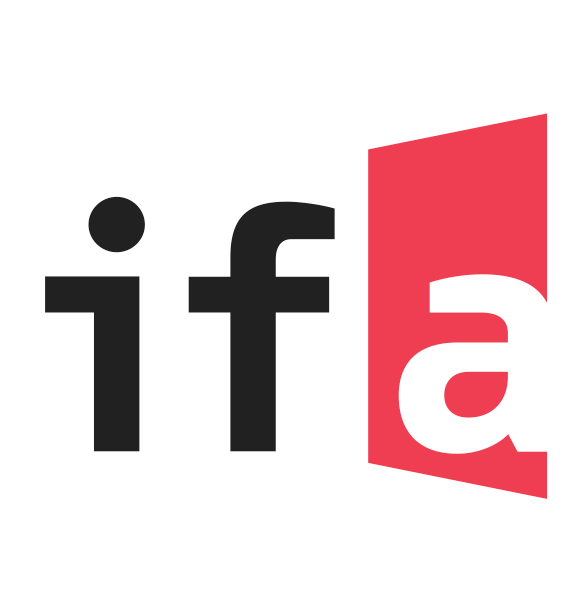
Project Title: Relocation/Individual Support Grant
Donor: Institut für Auslandsbeziehungen (ifa)
Budget: 12,956 EUR
Duration: July 1-December 31, 2022
Project Summary
IDFI will provide individual and institutional support to human rights defender(s) to build operational structure in Georgia, and integrate into the local community.
To this end, human rights defender(s) will be provided with the practical aspects of NGO work in Georgia, the necessary opportunities for professional networking with local experts, and the necessary support to maintain personal resilience.
Project Budget
Contract
Grant agreement
|
IDFI will provide individual and institutional support to human rights defender(s) to build operational structure in Georgia, and integrate into the local community.
View more →
|
| Organisation and implementation of the Workshop on localisation with Georgian and Belarusian partners |
The Deutsche Gesellschaft fur Internationale Zusammenarbeit (GIZ) GmbH |
2022 |
GEL 24,273 |

Purpose of the Contract: Organisation and implementation of the Workshop on localisation with Georgian and Belarusian partners
Project: Institutional Integration of the Agenda 2030 in Belarus and Other Eastern Partnership Countries
Donor: The Deutsche Gesellschaft fur Internationale Zusammenarbeit (GIZ) GmbH
Budget: 24,273 GEL
Duration: June 24 – July 8, 2022
The service contract considered the organization of study trip for Belorussian and German experts in Georgia on the Localization of Sustainable Development Goals (SDGs).
The service included the following tasks:
1. Organisation and implementation of the workshop - preparation of workshop methodology; presentations concerning the Georgian status quo of localizing the Agenda 2030; implementation, moderation and documentation of the workshop and its results;
2. Organisation and implementation of the field trip - identifying and coordination of relevant visiting points supporting the achievement of the overall workshop goals; approaching and preparing stakeholders of the visiting points; technical concept of the field trip; documentation of the field trip results;
3. Logistical support of the workshop and field trip - organization of catering during the workshop day and during the field trip; organization of technical equipment; organization of transport on the day of the field trip; providing contact and resource person for participants (especially for foreign participants); settlement of costs incurred during the workshop and field trip.
Budget
Contract
Grant agreement
|
The service contract considered the organization of study trip for Belorussian and German experts in Georgia on the Localization of Sustainable Development Goals (SDGs).
View more →
|
| Advancing Open Data Standards and Promoting Open Data Use in Georgia |
International Media Support (IMS) |
2022 |
€ 22.619 |

Project Title: Advancing Open Data Standards and Promoting Open Data Use in Georgia
Donor: International Media Support (IMS)
Budget: 22.619 EUR
Duration: June 1-November 30, 2022
Summary of Project and Activities:
Despite Georgia’s achievements in making more public data available over the past years, observations of local and international organizations show that the country necessitates improved legislation on access to public information and adoption of open data standards.
The project aims to advocate for the improvement of FOI regulation in the country through multistakeholder dialogue and sharing best practices with Georgian public servants. In addition, to ensure greater public support on the issue, IDFI will promote the use of open data among various stakeholders.
IDFI will implement the following activities in frames of the proposed project:
Activity 1. Preparatory stage - At the first phase of the project, IDFI will plan/prepare all organizational or methodological documents/issues, which ensure that all project activities are implemented on time and with high quality.
Activity 2. FOI advocacy meeting - IDFI will organize an advocacy meeting with the participation of Georgian civil society, public institutions, journalists, academia, and the international community to discuss the need for the improvement of legislation and practice in Georgia.
Activity 3. Preparing and disseminating analyses - IDFI will prepare two analyses to demonstrate major legislative, institutional, and practical gaps/needs in terms of access to open data in Georgia based on international rankings and reports, with a particular focus on the Global Data Barometer, published in May 2022.
Activity 4. Organizing Workshops - To better advocate our recommendations and inform public institutions as well as civil society and private sector representatives on major needs and particular gaps for Georgia in terms of the availability of open data, IDFI will organize two workshops with their participation.
Activity 5. Open Data Contest - In order to promote the use of open data for government accountability and the public good, IDFI will organize its annual contest on analytical articles on the topic of #Data4Change.
Project Activities and Budget
Contract
Grant agreement
|
The project aims to advocate for the improvement of FOI regulation in the country through multistakeholder dialogue and sharing best practices with Georgian public servants.
View more →
|
| Overcoming disinformation and nostalgia surrounding Stalin: A new identity for the city of Gori - Stage 2 |
Georgian Information Integrity Program(GIIP) / USAID |
2022 |
GEL 47,310 |

Project title: Overcoming disinformation and nostalgia surrounding Stalin: A new identity for the city of Gori - Stage 2
Supported by: Georgian Information Integrity Program(GIIP) / USAID
Budget: GEL 47,310
Duration: 02.05.2022 - 26.07.2022
Disinformation narratives that are primarily based on the sentiments and nostalgia towards Stalin in Shida Kartli have been passed down from generation to generation and continue to play a key role in the region's identity and self-identification. Due to the constant instrumentalization of Stalin's legacy, the region is still nurtured by the myths surrounding Stalin.
Considering the above-mentioned issue, it is important to contribute to the de-escalation of the deepening nostalgia towards Stalin and Soviet times and to intervene in passing on these views to future generations without any critical approach. The identity of Gori being this intertwined with Stalin’s figure (both internal and external perceptions) does not allow the citizens to imagine a different positioning of their region or alternative means of developing its tourism potential. The project’s approach is to not only deliver the idea to the local population but more importantly, to incorporate them, as the main audience of the project, in creating and upholding this renewed narrative.
As an outcome, an alternative visual platform will be created. Hence, the project will highlight hitherto unknown people, locations, places of memory of trauma and triumph, and important moments in the (pre-Soviet or independent to Soviet regime) history of the city. While creating and promoting the materials, the local youth and vulnerable groups (e.g.IDP people) will be engaged and informed on the development of the project making their city’s historical identity relevant for them. As a result, the local stories, merits, narratives of trauma, and victories become important driving forces and the central element of social identity in the center of Shida Kartli.
In the second stage of the project, the short stories will be created based on the research materials collected by now. Moreover, the visual materials will be incorporated into the short infographic videos based on the stories and archival research. The second stage of the project will provide the materials that will then be printed and located around the city, marked with QR codes. The online and physical spaces are meant to popularise the alternative and at times forgotten history of the city/region among the local population and the guests of the city.
The project will also contribute to the generational dialogue, engaging the teachers and students in discussing their city, its unique history, and alternative identity. The “identity map” and corresponding informational banners/items displayed across the town will serve as a starting point for kicking off the dialogue.
The product of the project will be sustainable insofar as the physical map will be disseminated in public and so will be the digital map. The product ( in a physical form across the city and online format) will be available for the tourist groups, local teachers and interested part of the society at any given moment.
Project Objectives
- Contribute to the greater knowledge of and awareness about the alternative history of Gori / Shida Kartli and replacing the figure of Stalin as an element of pride;
- new identity map and narratives have a long-standing impact on the stories that are told about the region and the locations and items throughout the city become to serve as a starting point for the dialogue about the city’s alternative (from that where Stalin is the central figure) history;
- Create a new (online and physical) “identity map” based on the city’s history, superseding the figure of Stalin as the most important source of pride;
- Engage locals in re-discovering city’s new identity;
- Highlight hitherto unknown people, locations, places of memory of trauma and triumph, and important moments in the (pre-Soviet or independent to Soviet regime) history of the city.
Project activities:
- Researching the history of Shida Kartli and its inhabitants, important historical events, and places;
- Compose short stories based on historical and sociological research;
- Record the local respondents to be incorporated in the short videos (2 videos); Production of the Videos and infographics (5 videos);
- Hold meetings/discussions with the local community about the identified stories/places;
- Create an online host platform (entry on the website);
- Identifying the relevant locations in the city with the local representatives and researchers;
Grant agreement
|
Project objective is to contribute to the greater knowledge of and awareness about the alternative history of Gori / Shida Kartli and replacing the figure of Stalin as an element of pride; To create a new (online and physical) “identity map”.
View more →
|
| Global AI Advocacy in Georgia |
Global Partners Digital |
2022 |
€ 2,750 |
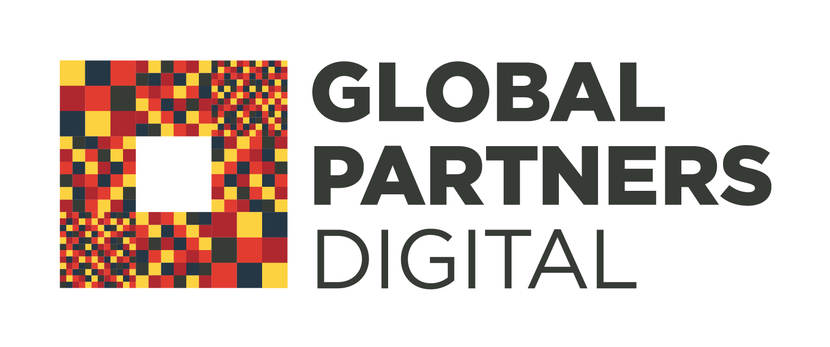
Project Title: Global AI Advocacy in Georgia
Donor Organization: Global Partners Digital
Total Budget: 2,750 EUR
Duration of the Project: April 25 - November 28, 2022
Project Summary
The project aims to promote a human rights approach to artificial intelligence by shaping the outcomes of relevant national and international debates.
The major activity of the project is updating and implementing the global advocacy strategy.
The project deliverable include:
I. Global AI Advocacy Strategy:
- Review and update the global advocacy strategy that was developed in the first phase of the project.
- Identify which forum(s) and/or process(es) civil society input would have the biggest impact and provide a clear and strategic plan for engagement in one or more of these processes.
II. Implementation of Global AI Advocacy Strategy:
- On the basis of the updated global advocacy strategy, engage in the designated forums and/or processes and implement the activities outlined in the strategy;
- Engagement may include, but is not limited to: participation in consultations with civil society; develop analysis, joint statements, and/or responses to relevant policy outcomes and texts adopted by relevant policy forums; or engagement in direct advocacy with relevant policy makers.
Contract
Grant agreement
|
The project aims to promote a human rights approach to artificial intelligence by shaping the outcomes of relevant national and international debates.
View more →
|
| Analysis of Russian Capital in Georgian Business - Stage 2 |
Georgian Information Integrity Program (GIIP) / USAID |
2022 |
GEL 46,800 |

Project title: Analysis of Russian Capital in Georgian Business - Stage 2
Supported by: Georgian Information Integrity Program(GIIP) / USAID
Budget: GEL 46,800
Duration: April 18, 2022 – September 1, 2022
In March 2022, IDFI published a study - Russian Capital in Georgian Business: A First Overview of the Communications, Banking and Mineral Water Sectors - which included the above sectors.
In the second phase of the project, IDFI intends to review and publish a new report detailing the work, resources and connections of Georgian companies owned by Russian citizens in the following sectors: electricity, oil and gas.
The business is often related to socio-political actors and influences on public perceptions. We deem it important to closely investigate such links between political, civil and media actors and business companies owned by the citizens of Russia. This would give us a clear image of funding sources behind some malign political, media and civil actors that actively spread disinformation in the country. For this, IDFI will monitor the donations, lobbying cases and other types of connections between the companies and societal actors in order to map the network of Russian capital and political organizations in Georgia. As a result of the three stage project, IDFI plans to create a map of the Russian capital in Georgia, which will be integrated into the Georgian Disinformation Ecosystem Map.
Project Objectives
- Investigation of Russian capital in the mentioned sectors of Georgian business and its impact on the political, media and civil sectors;
- Investigating and mapping the Russian capital in Georgian business and its impact on Georgian political, media, and civil actors;
- Revealing the connections between the companies owned by the citizens of Russia and political, civil, and media actors affiliated with the government of the Russian Federation;
- Creating an effective tool and source of verified information for the civil society and research organizations as well as for media outlets that are focused on Russian-Georgian relations, Russian propaganda and disinformation issues;
-Providing the Government of Georgia with detailed information about the potential and/or existing malign influence of Russian capital on the Georgian political environment;
Project activities:
- In the second phase of the project, gathering information from public agencies, the Internet and other open sources in the following four areas: Electricity, oil and gas.
- Update the company information studied in 2015’s report.
- Creating an analytical brief/interim report.
Project Activities and Budget
Grant agreement
|
Project Objective: Investigation of Russian capital in the mentioned sectors of Georgian business and its impact on the political, media and civil sectors;
View more →
|
| Digital Freedoms in Georgia |
Internews and United States Agency for International Development (USAID) |
2022 |
$ 19,843 |
 
Project Title: Digital Freedoms in Georgia
Project #: SG-GX2060-LP-37 moo
Donor: Internews and United States Agency for International Development (USAID)
Budget: 19,843.70 USD
Duration: April 18 – November 17, 2022
Summary of the Project
The project aims to strengthen Internet freedom in Georgia.
To this end, IDFI will implement the following activities:
1. Publish and disseminate a policy brief on digital rights issues (Month 1 - Month 3) – At the first phase of the project, IDFI will prepare a policy brief, outlining major developments and needs in the sphere of digital freedoms and literacy in Georgia.
2. Plan, organize, and execute one digital rights advocacy campaign (Month 1-Month 3) – IDFI will prepare a video discussing major challenges, opportunities and policy recommendations in the sphere of digital freedoms in Georgia.
3. In collaboration with ICNL, publish an evidence based policy brief on digital rights issues related to surveillance ((Month 2 - Month 4). This would be a cooperation between ICNL, DSLU and IDFI and Media Diversity Institute from Armenia.
4. In collaboration with RDR, undertake a data-driven, evidence based research on corporate accountability issues (Month 5 - Month 7)– Similarly, IDFI will cooperate with RDR and prepare a country report on Georgia on the issue of corporate accountability.
5. Plan, organize, and execute a digital rights training (Month 5 - Month 7)– At the final stage of the project, IDFI will conduct a training on digital rights for students, journalists, CSO representatives and civic activists. It will be a half-day training and among other theoretical issues on digital rights, training participants will get familiar with IDFI’s policy briefs prepared as part of the project.
Budget
Contract
Grant agreement
|
The project aims to strengthen Internet freedom in Georgia.
View more →
|





















.png)







